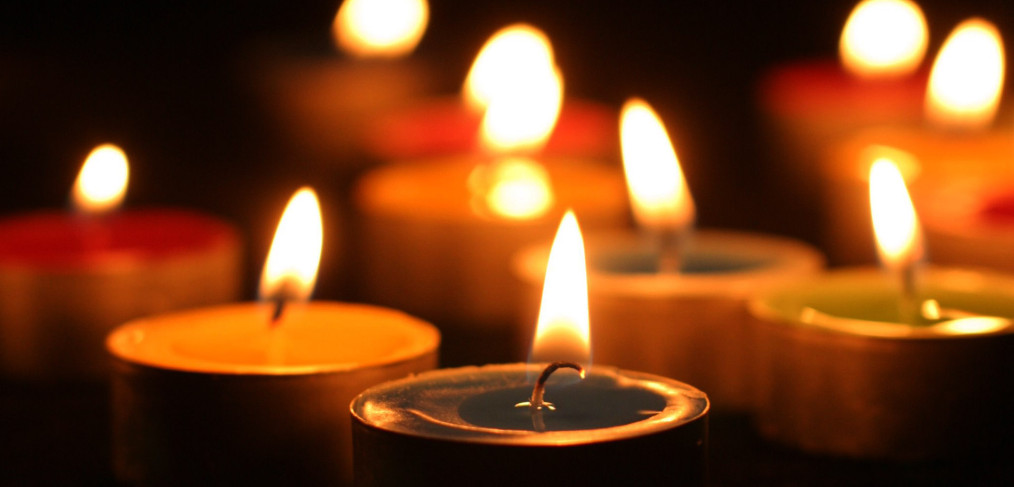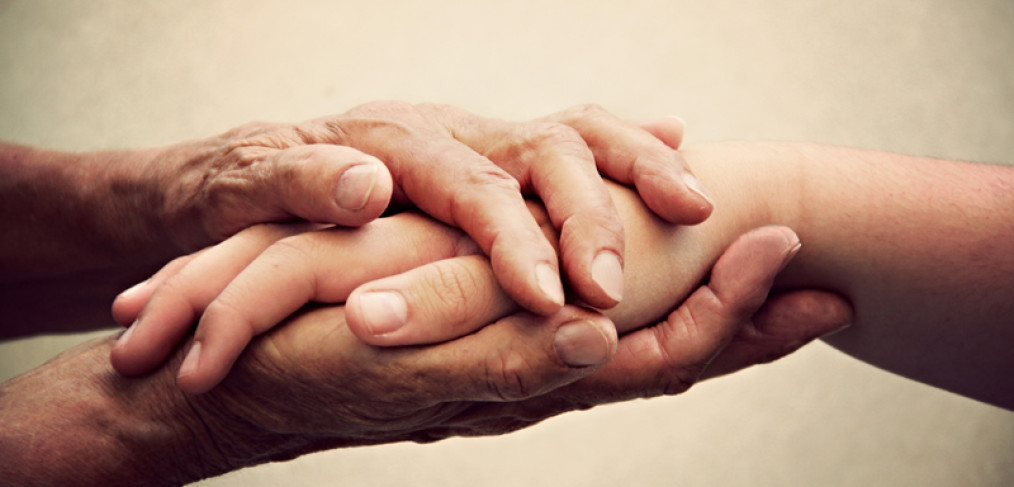In a recent conversation, a dear friend for many years asked me, “I wonder why it is that people need to hold this special view of what is sacred… why some things are sacred and others aren’t.” This is fascinating inquiry, one that invokes a number of subjects, such as the nature of healing, activism, our working definition of spirituality, and our emotional lives — all of which I hope to touch on here.
Sacred Space is time and space we set aside, or which spontaneously arises, to experience a depth, richness, and sense of meaning that usually escapes us in fast-paced everyday life when we are not as connected as we could be with our body, intuition, good thinking, compassion and empathy, and other emotions.
I imagine that many reading this article consider everything to be sacred. Some of you might even consider evil and suffering to be sacred, since the world is full of dark and light. For me, the word sacred has a definite earthiness to it, a sense of being here engaged in some ritual or activity connected with everyday life. Whereas, what is “divine” to me has more connotations with things ethereal, with a non-material influence or presence in our lives. We could say, in a sense, that what we consider sacred is a certain holiness of earthy things and what is divine is the holiness and immutability of invisible forces.
These are the loose definitions I’ll hold for this discussion, and if your meanings are different, no worries, just use your own words to substitute for what I have defined as “divine” and “sacred.” After all, I don’t mention these definitions to impose my perspectives, but for the opposite reason — so that you know what I mean, so that you can find your own meaning for what is discussed here. The point, after all, is not to get hung up on the words, but on what the words mean and the things and experience to which they point.
So, in a nutshell, we’ll consider sacred to be the presence of something “divine” in an embodied or earthy way. Yet, many of us still, unconsciously or not, hold some aspects of life to be sacred and others non-sacred. Some of us also maintain huge distinctions between what is sacred, what is spiritual, and what is not. No doubt, some of this separation has arisen from religious traditions that maintain God and Spirit to be separate from material existence, and certainly our everyday, mundane activities.
While I’m not here to tell you what is sacred and what is not, I am here to help you clarify what the word “sacred” points to in your own experience, or whatever word you might use to describe what I have called sacred, and then to consider how your perceptions, and divisions, of what is sacred might be holding you back from more richness, fulfillment, and joy in your experience.
Finding Meaning
So, let’s begin with positive sacred experiences. Popular sacred experiences might include spending time in nature, yoga and meditation practice, morning prayer, in church or a synagogue, tender love-making with your partner, a sharing circle, any kind of ritual or ceremony, or a healing session. Other sacred space moments might include feeding birds on a park bench, playing or reading with your child, watching a meaningful movie, making art, petting and cuddling with a pet, sharing deep feelings with a loved one, helping someone in need, giving someone your full attention, or saving a piece of nature.
All these experiences have something in common: we find meaning in them, and/or they make us feel good. If something isn’t meaningful to us or makes us feel not so good, we tend to push it away as non-sacred. So, either unconsciously or consciously, we tend to make a separation in our perception of reality. We separate “positive” experiences from “negative” ones, and we consider some things more meaningful than others.
Now, sometimes we consider ordinary reality less sacred not because it is inherently meaningless, but because we haven’t yet found the meaning in it. So, part of sanctifying what we consider less sacred aspects of life is finding meaning in them. This requires a change in perception and/or a change in heart. For me, this is a spiritual pursuit: finding meaning in what I have previously found meaningless by opening, or spontaneously being opened, to its wisdom. This does not mean making up stories about reality, not infusing meaning into things through denial, but finding real intellectual and emotionally honest meaning in my experience and the nature of reality. And this usually means letting both my heart and mind break open.
In particular, difficult emotions — such as anger, grief, remorse, guilt, and despair — is a domain I have found great meaning in over the years. I have found that when I stay with and welcome these difficult emotional states, they change, and change me for the better. In fact, my very welcoming them and feeling and expressing them allows them to change, allows them to truly transform me into more breadth and depth, so that I can keep my heart clear and open to the rest of life. So, all these emotions have become sacred to me, and they also allow me to experience more meaning and richness in the rest of what I consider sacred.
If we consider certain aspects of life not to be sacred, then we might hold them out of our hearts. When we hold parts of life out of our hearts we hold them away from our love and healing. Things I tend to want to hold outside of sacred are pollution, GMOs and toxic agriculture, dishonesty, and needless violence. And I confess, these are all still largely non-sacred to me because they desecrate the very fabric of life. But, if they spur more compassion, more revolution, more love, and more care for our environment, then they acquire some sacred value. And I do see that they inspire these qualities, however seemingly unnecessarily.
With this said, these industries don’t show enough transformational value, as with difficult emotional states, that I consider them worth keeping, at all. In other words, while they might elicit sacred internal moments, and sacred activism, they don’t create enough goodness in the world, and in fact, do great damage. And the good they do is only in the context of our trying to get rid of them! So, right or wrong, I do have a limit to what I consider good and “sacred.” What destroys the planet and our lives, with little redeeming value, is not sacred to me. With this said, destruction and death are natural, and sacred to me, but not when they are avoidable (largely by natural means) and go against the inherent wisdom of nature.
Love and the Sacred
So indeed, part of what is sacred relies on what we find meaningful and valuable. I find the Earth and its biosphere valuable. I find the proliferation of other species valuable. I consider clean water, soil, air, oceans, and forests valuable. So, I hold judgment over what injures these. And the sacred meaning I find in these negative influences is fighting against them and more deeply regarding as precious what they injure. I consider this gritty form of revolution part of the love revolution, as we protect what we have defined to be sacred. And since part of what fosters care for our planet involves feeling our anger and protection, our sadness and despair, these emotions increase our participation for what we love, for what is sacred. Love, then, is more than just a feel-good experience. And so is what I consider sacred.
When we can join what we consider non-sacred to what we do consider sacred, we join Yin and Yang, and we bolster the cycle of fertility and sustainability through ordinary activism, which is love in action.
For this reason, it’s important for me to keep my mind open to what I might be in denial of or blind to. For, if I misread part of reality and deem it evil when it is not — as certain religious and “spiritual” doctrines and edicts have done for too long, and I think many times in gross error — then I myself become a negative force. Discerning reality, therefore, is important to our sense of the sacred and our love. If I suddenly become aware of the great value of toxic agriculture, pollution, and mercenary greed, then I might be able to embrace these more and consider them sacred. So far, I have not found much grace, much sacredness, in these enterprises.
We can create an external space with similar qualities we want to cultivate inside us. And, we can bring qualities inside us that we want to see in the external world.
So, if you are torn up inside, find sacred space outwardly to help heal yourself inwardly. And if you are in chaos outwardly, summon your sustainable and enduring inner resources to the aid of the external moment.
Spiritualizing the Ordinary
A popular domain of the sacred is what many include in their definition of spirituality. Rituals, ceremonies, and gatherings of all sorts that we consider sacred are often held in a special space with special preparations. This has been the case for millennia in all cultures. Part of my struggle, however, has always been how to integrate the meaning and quality of attention common to these special functions and experiences into everyday experience. How to spiritualize “ordinary” life.
Indeed, many don’t even try to integrate “sacred space” in to “everyday space.” Their spiritual life is separate from everyday life. This creates a schism between what we consider sacred and what is not. I have never been satisfied with a spiritual life that does not directly and practically influence my everyday life, thereby spiritualizing the mundane.
Author: Jack Adam Weber – Wake Up World










